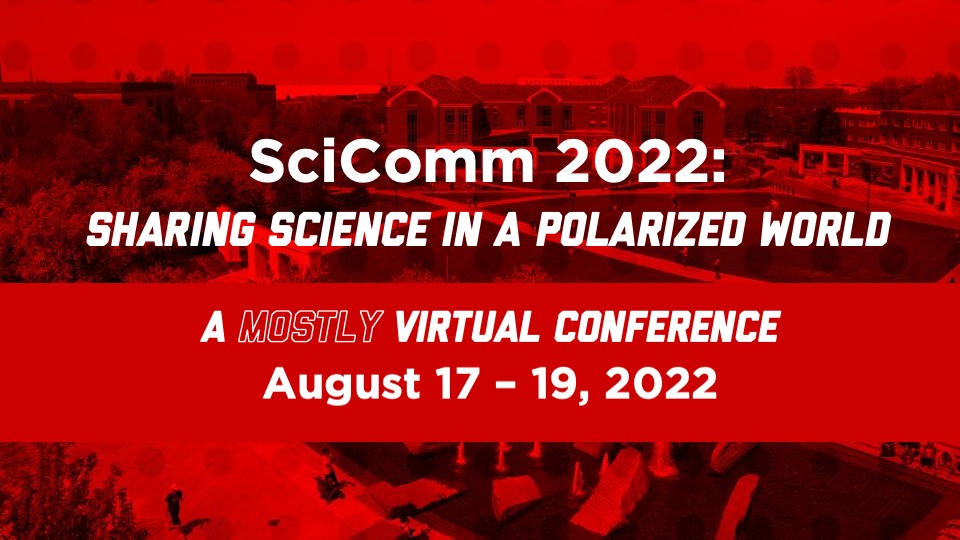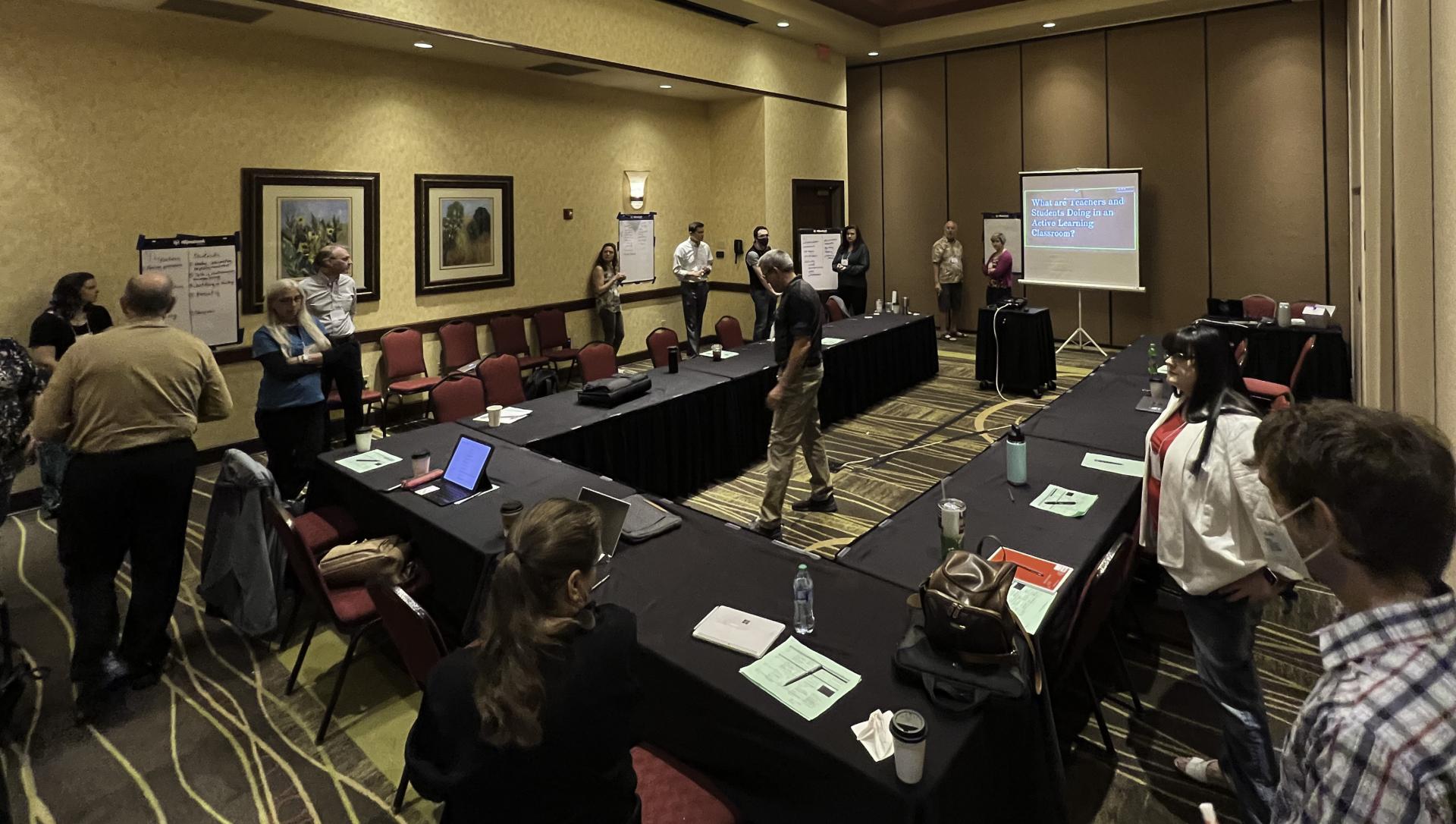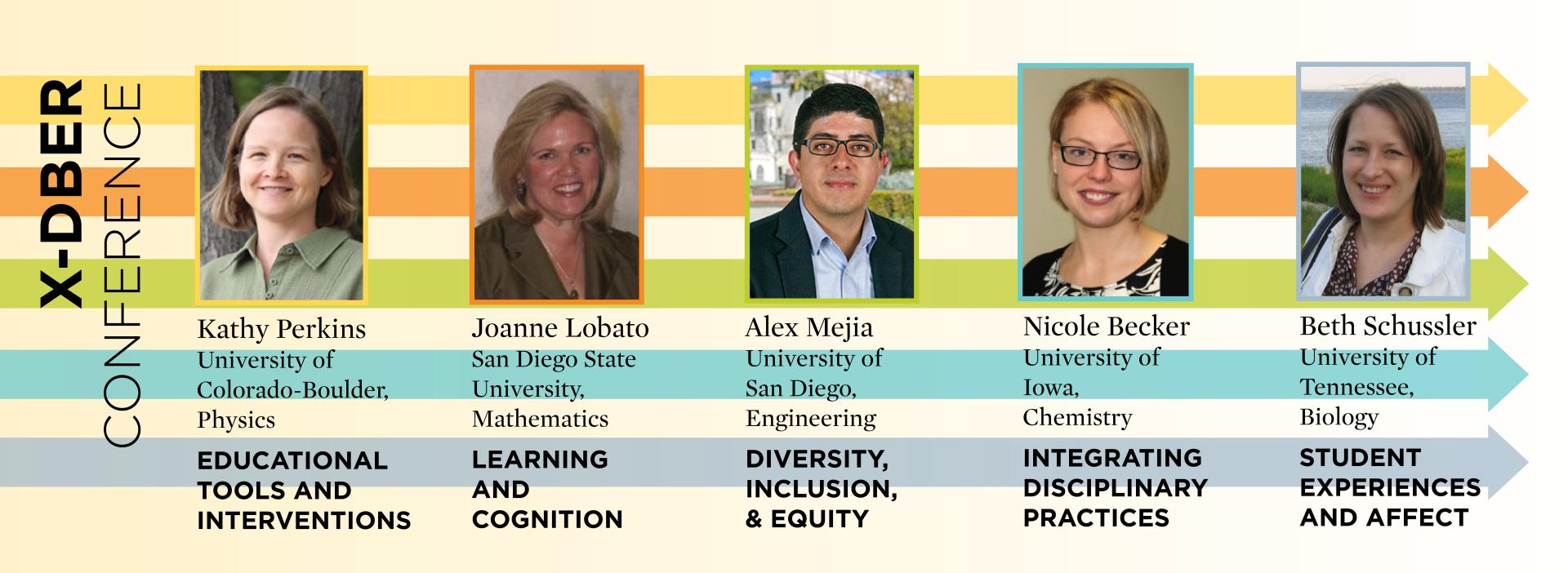SciComm 2022: Sharing Science in a Polarized World
SciComm is a conference dedicated to understanding and promoting effective communication of science to diverse audiences – including students of all levels as well as the general public – across all venues. SciComm 2022: Sharing Science in a Polarized World occurred August 17-19 online.

Change DIAL Conference
This project aims to address the national call for broader student participation and success in mathematics-intensive fields. The grant organized a conference focused on community building and learning among institutions dedicated to improving mathematics education in May 2022. Over the past five years, undergraduate calculus education has experienced significant scrutiny, attention, and interest. Much of the scrutiny has pointed to the experiences of undergraduate students who initially express interest in STEM majors, but become disillusioned and change to non-STEM majors after completing a course in the calculus sequence. The persistent call for increased student success in STEM has focused on status quo instructional practices and high failure rates in the calculus sequence, in particular for underrepresented groups—including women and students of color. Such attention has resulted in interest among mathematics departments and university administrators in improving mathematics instruction through investments in professional development, course coordination, instructional materials, and student supports. In particular, the conference organizing committee’s work with undergraduate mathematics departments through the NSF-funded Progress through Calculus (PtC; DUE-1430540) and Student Engagement in Mathematics through an Institutional Network for Active Learning (SEMINAL; DUE-1624643, 1624610, 1624628, and 1624639) grants has identified a strong interest among mathematics faculty in participating in a Networked Improvement Community that shares resources, data, and lessons learned regarding implementing and sustaining active learning in the calculus sequence. A key lesson learned from these institutions is that sustaining such efforts requires significant shifts in departmental culture. The Change in Departments and Institutions via Active Learning (Change-DIAL) Conference is designed to expand this network of partners to include faculty from institutions not participating in SEMINAL or PtC, to encourage and support data-informed improvement efforts, and document lessons learned to share nationally. Speakers from various institutions shared their research during concurrent workshop sessions focused on four major themes: attention to equity, diversity and inclusivity in the classroom, departmental culture and change strategies, course and curriculum redesign, and professional development.

X-DBER Conference 2021
The discipline-based education research (DBER) community hosted an online conference to discuss how theories, methods, and application of education research cross disciplinary boundaries. The X-DBER 2021 conference was held March 1-3, 2021. More than 550 people registered to attend the X-DBER 2021 conference; participants came from 11 countries and 41 states in the U.S. The goal of this conference was to bring together DBER researchers from across disciplines (e.g., biology, chemistry, engineering, geoscience, math, physics) to learn about ongoing research and develop future directions. The conference opened with a welcome address from Chancellor Ronnie Green, followed by five themed sessions led by keynote speakers:
- Integrating disciplinary practices (Dr. Nicole Becker, University of Iowa, chemistry);
- Learning and cognitive research (Dr. Joanne Lobato, San Diego State University, math);
- Diversity, inclusion, and equity (Dr. Alex Mejia, University of San Diego, engineering);
- Student experiences and affect (Dr. Beth Schussler, University of Tennessee-Knoxville, biology); and
- Educational tools and interventions (Dr. Kathy Perkins, University of Colorado-Boulder, physics).
The meeting allowed researchers and practitioners to identify synergies in theoretical and research approaches across disciplines to help the diverse communities solve novel problems and translate research into classroom practices. This virtual setting allowed researchers across all ranks (e.g., graduate students, postdocs) to present their work to a national audience and helped connect these researchers to broader communities and research projects. Each session keynote was followed by concurrent talks and small group discussions, which allowed participants to further engage with the session themes. The concurrent talks gave brief but often powerful insights into other work being done in the field, and the subsequent discussions provided a venue for participants to consider cross-cutting findings and future directions. The conference culminated with a virtual poster session featuring more than 150 posters. Altogether, the conference provided a timely venue for the DBER community to consider how cross-disciplinary research can address critical questions in STEM education.
